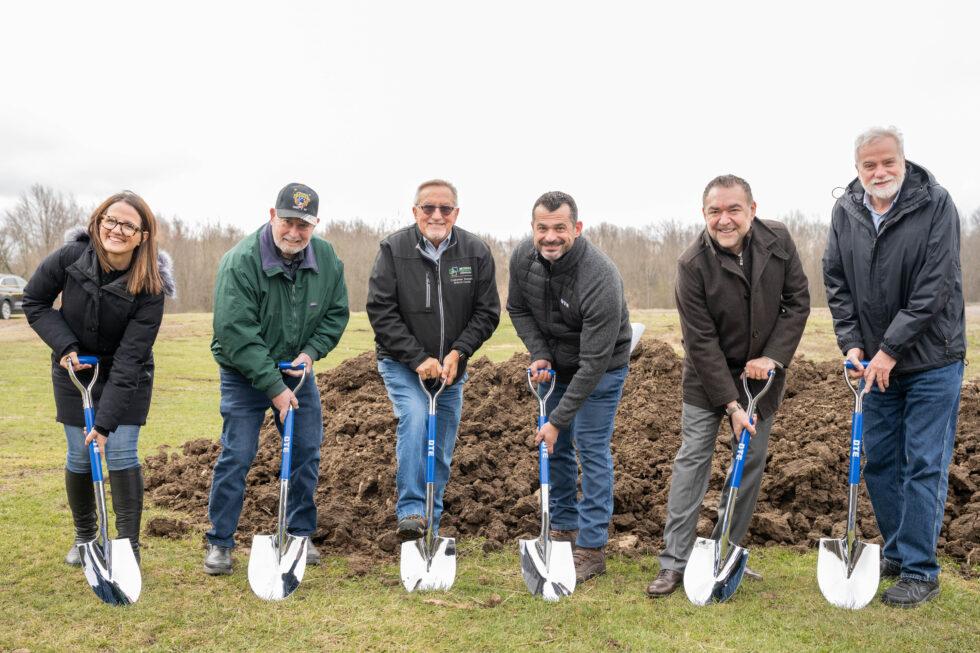Insider Brief
- DTE Energy has begun construction on the 100-megawatt Cold Creek Solar Park in Branch County, Michigan, marking the first of several projects supporting Ford Motor Company’s goal of 100% renewable energy use at its Michigan manufacturing sites.
- Ford’s enrollment in DTE’s MIGreenPower program, totaling 650 megawatts, represents the largest such renewable energy purchase from a utility in U.S. history and is projected to avoid 600,000 tons of CO2 emissions annually.
- DTE plans to bring six new solar parks online by mid-2025, totaling 800 megawatts, as part of its broader $4 billion renewable energy expansion aimed at reaching net zero emissions and advancing Michigan’s clean energy goals.
PRESS RELEASE – DTE Energy, the state’s largest producer of and investor in renewable energy, broke ground April 15 on a 100-megawatt solar array in Branch County, MI. When complete in 2026, Cold Creek Solar Park will be the first of several DTE parks that will help Ford Motor Company reach its goal of attributing 100 percent carbon-free and renewable energy to its Michigan manufacturing facilities.
Ford’s purchase of 650 megawatts of renewable energy from DTE’s CleanVision MIGreenPower program is the largest such purchase from a utility in U.S. history. MIGreenPower, DTE’s voluntary renewable energy program, enables business and residential customers to attribute their electricity use to Michigan-made renewable energy while funding the development of new solar and wind parks, such as this new array now under construction near Coldwater.
Ford’s enrollment in MIGreenPower, which will help the company avoid as much as 600,000 tons of carbon dioxide emissions annually, is part of its global environmental commitments. The company’s goal is to achieve carbon neutrality across its vehicles, manufacturing and supply chain no later than 2050, and to use 100% carbon-free electricity in its global manufacturing facilities by 2035.

“Thanks to this strategic investment with DTE, Ford will soon be able to attribute all of our electricity supply in Michigan to clean energy,” said Amir Mirshahi, director of Utilities and Energy Infrastructure at Ford. “This partnership is proof of Ford’s unwavering commitment to transitioning to clean energy and aligns us with our sustainability objectives. It represents a significant step toward our goal of achieving carbon neutrality and will also help make our local Michigan communities more resilient to the impacts of climate change.”
“We’re excited to be on this clean energy journey with Ford to fulfill its electricity needs with affordable, Michigan-made renewable energy,” said Matt Paul, president and chief operating officer, DTE Electric. “Our customers – whether they are large manufacturers like Ford, or hometown businesses, or families – are telling us they want more renewable energy, and we will continue to develop and deliver it to them.”
DTE’s renewable energy portfolio currently consists of 20 wind parks and 34 solar parks – all located in Michigan. DTE has invested $4.6 billion in its renewable energy infrastructure since 2009 and aims to invest an additional $4 billion in renewable energy over the next several years.
In 2025, DTE will have three new solar parks coming online in the first half of year, with three additional solar parks beginning construction. The six parks will total 800 megawatts, or enough clean energy to power more than 220,000 homes. The developments will help DTE make significant progress toward its goal of achieving net zero carbon emissions as well as meeting the State of Michigan’s clean energy goals.
For more information on DTE’s MIGreenPower program, please visit www.migreenpower.com.








